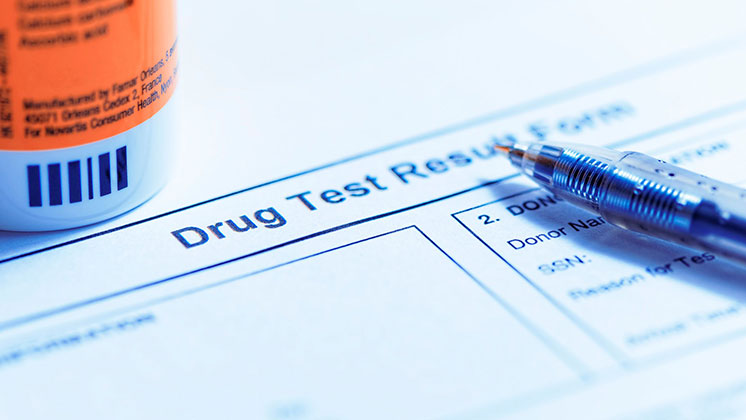The Impact of Drug Tests on Workers’ Compensation Claims in Virginia

In the realm of workers’ compensation law, few issues are as complex and contentious as the impact of drug tests on claims. For employees in Virginia who have been injured on the job, it’s crucial to understand how drug testing can affect their workers’ compensation. This article delves into the intricacies of drug testing in relation to workers’ compensation claims in Virginia, exploring the legal landscape, employer rights, and potential consequences for employees.
Virginia’s Stance on Drug Testing in the Workplace
Virginia law gives employers significant latitude when it comes to drug testing policies. Unlike some states, Virginia does not have specific statutes regulating workplace drug testing for private employers. This means that employers have the discretion to implement drug testing programs as they see fit, provided they comply with federal laws regarding discrimination and privacy.
Employer Rights and Responsibilities Regarding Drug Testing
Virginia employers are permitted to:
- Conduct pre-employment drug screenings
- Implement random drug testing programs
- Require post-accident drug tests
- Test employees based on reasonable suspicion of drug use.
However, employers must ensure their drug testing policies are applied consistently and do not discriminate against protected classes.
Employee Rights and Protections When It Comes to Drug Testing at Work
While employers have broad rights to conduct drug tests, employees are not without protections. If you’re an employee in Virginia, know your rights regarding drug testing and workers’ compensation:
- Employers must typically provide advance notice of drug testing policies.
- A worker cannot be singled out for drug testing based on their protected qualities such as race, gender, or age.
- Testing procedures should ensure accuracy.
- Testing cannot invade privacy (for instance, a worker cannot be compelled to disrobe in front of others to provide a urine sample).
- Employees have the right to challenge false positive results.
How to Protect Your Rights During Employee Drug Testing in Virginia
Here are tips and steps to take if your employer in Virginia asks for a drug test in relation to your workers’ comp claim:
- Familiarize yourself with your employer’s drug testing policy.
- Understand your right to refuse a drug test, but be aware of potential consequences.
- Keep records of all workplace incidents and communications.
- Disclose any prescription medications that could affect drug test results.
- Seek medical attention promptly after any workplace injury.
- Consider consulting with a workers’ compensation attorney if your claim is denied.
Virginia Laws and Drug Tests in Workers’ Compensation Claims
When an employee files a workers’ compensation claim in Virginia, drug testing can play a significant role in determining eligibility for benefits:
Virginia Workers’ Compensation Act
Under the Virginia Workers’ Compensation Act, employees who are injured on the job are generally entitled to benefits regardless of fault. However, there are exceptions to this rule. For example, if the employee’s injuries resulted from their intoxication or use of non-prescribed controlled substances, this may be an obstacle to receiving workers’ comp.
Burden of Proof
If an employer suspects that an employee’s injury was caused by intoxication or drug use, the burden of proof lies with the employer to demonstrate:
- The presence of drugs or alcohol in the employee’s system at the time of the accident, and
- That the intoxication or drug use was the proximate cause of the injury.
A positive drug test alone is not sufficient to deny a claim. The employer must provide additional evidence linking the drug use to the accident.
Post-Accident Drug Testing
Many Virginia employers require drug testing following workplace accidents. This practice is allowed under both state and federal law, with some limitations.
OSHA Guidelines
The Occupational Safety and Health Administration (OSHA) has issued guidelines regarding post-accident drug testing:
- Employers should not use drug testing as a form of retaliation against employees who report workplace injuries.
- Post-accident testing should be limited to situations where drug use is likely to have contributed to the incident.
- Employers should have a reasonable basis for believing that drug use could have been a contributing factor.
What Happens to Worker’s Compensation When The Drug Test Returns a Positive Result
A positive drug test can significantly impact a workers’ compensation claim in Virginia, but it does not automatically disqualify an employee from receiving benefits. If an employee tests positive for drugs or alcohol after a workplace accident, they may face:
- Denial of workers’ compensation benefits
- Disciplinary action, including termination
- Increased scrutiny of their claim.
How You Can Still Be Eligible for Worker’s Compensation Even With a Positive Drug Test Result
Employees who test positive for drugs or alcohol may still be able to receive benefits if they can demonstrate:
The positive test result was due to prescribed medication.
Keep in mind that an employer may take adverse action, including terminating an employee, if they do not have a prescription. The use of medical marijuana is an example. In Virginia, if a worker has a certificate to use medicinal cannabis, they can lawfully use this substance as prescribed, and the law generally protects them from termination and discrimination.
Note however that the federal Americans with Disabilities Act (ADA) does not prohibit employers from testing workers for drug usage or implementing drug-free workplace rules. Employees who use illegal narcotics are not given any protection at all.
The drug use did not contribute to the accident.
Your employer must demonstrate that intoxication directly led to the occurrence of the accident or injury. You might still qualify for benefits if you can demonstrate that your intoxication had nothing to do with the actual incident.
For instance, it might have been a defective machine, not your intoxication, that caused your harm if you were intoxicated at work (something we do not support at Slominski Law). The machine was the direct cause of your harm, regardless of your employer’s attempts to claim that you would have detected the flaw or behaved differently if you were sober.
There is proof that you were not intoxicated at the time of the accident.
A drug test by itself may be insufficient to demonstrate intoxication, even when your employer (and the workers’ compensation insurance provider) asserts that you were intoxicated at the time of the accident.
However, drugs can be detected in the body’s system for several days, making this challenging. For instance, you might test positive for marijuana days or weeks after inhaling if your company does a urine test.
The test was improperly administered or the results were inaccurate.
While it would seem easy to prove you failed a drug test, there are a number of things that can cast doubt on a drug test’s validity. In order to guarantee the acceptance of your drug test findings, your company must also adhere to certain legal requirements.
For instance, a lab certified by SAMHSA must administer your test. This government agency, which is governed by federal laws, is short for Substance Abuse and Mental Health Services Administration. Your exam could be canceled if you don’t use a lab that has this certification.
Virginia’s Medical Marijuana Law: Medical Marijuana and Workers’ Compensation
The legalization of medical marijuana in Virginia has added a new layer of complexity to workers’ compensation claims.
Virginia legislation forbids employers from terminating, punishing, or treating workers unfairly because they are using cannabis oil legally with a valid prescription as of July 1, 2021. However, this protection does not extend to workplace impairment caused by cannabis oil use, or possession or use of cannabis oil during work hours.
Hence, the use of medical marijuana presents challenges for workers’ compensation claims:
- Employees using medical marijuana may still test positive in workplace drug screens.
- Employers must balance safety concerns with employee rights.
- The federal prohibition on marijuana complicates reimbursement for medical marijuana as a treatment under workers’ compensation.
In this tricky area of the law, it’s important that you have a skilled workers’ compensation attorney advocating for you.
Challenging Denied Worker’s Comp Claims Due to Drug Testing
Employees whose workers’ compensation claims are denied due to positive drug tests have the right to challenge the decision.
Appeal Process
The appeal process in Virginia involves:
- Filing a claim with the Virginia Workers’ Compensation Commission
- Attending a hearing before a Deputy Commissioner
- Presenting evidence and testimony to support the claim
- Potentially appealing to the Full Commission or higher courts.
Legal Representation
Given the complexity of these cases, employees facing claim denials due to drug test results should consider seeking legal representation. An experienced workers’ compensation attorney can:
- Evaluate the strength of the case
- Gather and present evidence to support the claim
- Challenge the validity or relevance of drug test results
- Negotiate with insurance companies
- Represent the employee at hearings and appeals.
Having Issues With Your Worker’s Comp Claim Because of Workplace Drug Testing? Contact Attorney Jaleh Slominski.
The impact of drug tests on workers’ compensation claims in Virginia is significant and multifaceted. Positive drug tests can complicate workers’ compensation claims, but they do not automatically disqualify employees from receiving benefits.
If you’re facing complex workers’ compensation issues related to drug testing, seek the guidance of an experienced attorney in navigating the claims process and protecting your rights.
Reach out to Slominski Law. With offices in Lynchburg and Roanoke, Attorney Jaleh Slominski has extensive experience in workers’ compensation law and can provide the personalized legal help you need. Contact Slominski Law at (434) 384-9400 (Lynchburg office) or (540) 554-3762 (Roanoke office) to discuss your case.





